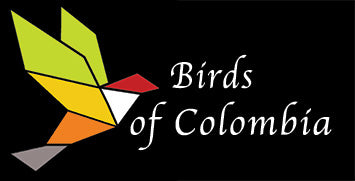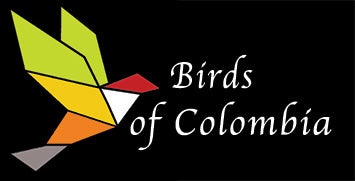Periquito Colirrojo
Maroon-tailed Parakeet
Pyrrhura melanura
Song
Maroon-tailed Parakeet
Appearance: About 28 cm (11 in) in length. Predominantly green plumage with a distinctive maroon or reddish-brown tail, which gives the species its name. It may also have a hint of maroon on the wings. Often have a whitish or buff-colored face with a dark line running from the beak through the eye. Beak is dark, usually black or grayish.
Habitat: Found in the Andean regions and lowland forests of Colombia. Prefers humid forests, including both primary and secondary forests, and can also be found in forest edges and clearings. Inhabits areas from lowlands up to about 2,800 m above sea level.
Behavior: Highly social birds that are often seen in small flocks. Feeds on a variety of fruits, seeds, and possibly flowers and nectar. Known for being quite vocal, with a range of calls used for communication within flocks.
Breeding: Likely nests in tree cavities, like many parrot species. Specific breeding habits in the wild are not well-documented, but captive breeding suggests they lay a clutch of 3 to 6 eggs. The female typically incubates the eggs for about 23 to 26 days.
Conservation Status: The Maroon-tailed Parakeet is classified as Least Concern globally on the IUCN.
Distribution
This bird has been reported in the departments of Hula, west of Meta, and northern Caquetá.
Taxonomy
The Maroon-tailed Parakeet (Pyrrhura melanura)
- Kingdom: Animalia
- Phylum: Chordata
- Class: Aves (Birds)
- Order: Psittaciformes
- Family: Psittacidae
- Genus: Pyrrhura
- Species: Pyrrhura melanura
Vocalization
Contact Calls: These are short, sharp whistles used by parakeets to maintain contact with flock members, especially when in flight or foraging.
Alarm Calls: Loud, abrupt squawks that signal danger or alert other birds to potential threats, helping ensure the safety of the flock.
Mating Calls: During the breeding season, males may produce more melodious and varied calls to attract females, displaying their suitability as mates.
Social Calls: These include a variety of chirps and whistles used for general communication among flock members, helping to maintain group cohesion.
Juvenile Calls: Young parakeets often have distinctive, higher-pitched calls that differ from adult calls, used to solicit attention and care from their parents.





